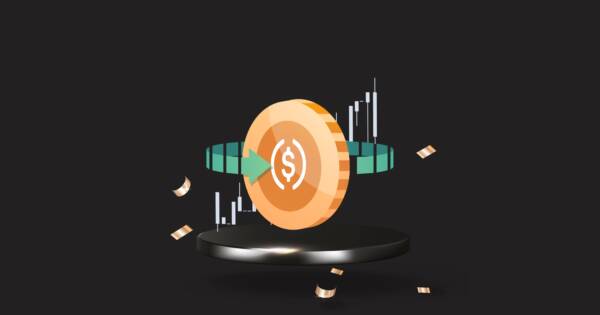One of the best ways to build your wealth is by investing. When you invest, you take your money and put it to work for you. You purchase shares in different assets and (hopefully) receive a portion of the gains in return. Investing is one of the financial keys that can lead to a better future and a successful retirement. However, you need to be careful when investing. Ultimately, it’s always a bit of a risk. Your funds could end up actually becoming less value. In the worst case, they could disappear entirely.
Whenever you invest, you are risking potential loss to court potential gains. Historically, the markets always go up over a long enough timeframe. In the short term, though, it can be a roller coaster — especially if you’re investing in volatile markets. As you prepare to invest in 2021, here are five things to keep in mind.
Stock Picking Isn’t for Everyone
The first thing you need to realize is that individual stock picking isn’t for everyone. The GameStop/Reddit mania is all over the news these days. At first glance, it can seem easy to strike it rich just by buying the same stock as many others. After all, plenty of amateur investors made nice profits buying and selling $GME.
What they don’t tell hear about as often is the people who lost a ton of money. At least one professional hedge fund that is said to have lost $2.7 billion betting against GameStop. There are countless others too, including so-called “retail investors” who missed getting in early but bought the stock anyway. After ballooning up to over $350 per share, it settled in a week later at $90. How many people bought at the top, thinking it would continue to rise? Investing in a single stock is like playing the lottery. You can get lucky, sure. You can also lose your life savings and more.
To be able to sustain wins over the long term long term, stock picking requires a lot of research. Additionally, when you pick single stocks, you are hanging more of your future on a few investments. This isn’t a wise move. For every GameStop story, there are dozens more “promising” stocks that went nowhere in decades. Picking stocks works really well for some, but it’s not for everyone.
Many ordinary investors do better by investing in index funds or ETFs. These investments follow the performance of a group of assets, rather than just one. This type of diversity is very helpful. It also reduces the stress that comes with stock picking. An all-market fund allows you to share in gains made by an entire market, rather than just a single company.
Remember Your Financial Plan and the Big Picture
It’s always important to remember your overall financial plan. Investing isn’t meant to be a short-term windfall. It’s a big picture type of financial commitment. It can be easy to get caught up in the day-to-day fluctuations of market volatility. Just remember that the markets tend to smooth out over the course of time. Instead of worrying about every uptick and drop, think about the long-term potential.
Before you abandon a financial plan, you need to consider whether or not you are reacting out of fear. A dip in the stock market isn’t always a solid reason to change things up. Take a long view and remember the big picture. If you’re not planning to retire for another decade or two, don’t stress about fluctuations. As long as you focus on those items, you will be far more likely to create a portfolio that helps you reach your long term goals.
Equities Don’t Go Straight Up
If you only recently started investing, you might think that the stock market only goes straight up. However, that’s far from the truth. Stocks do tend to have more up years than down. However, large market drops can be devastating. The onset of Covid-19 last year was really bad for the markets. However, many people got through without panicking because the drop and subsequent rebound happened so fast.
The Great Recession from 2007 to 2009 was harder to stomach because it lasted 17 months. One of the worst crashes in recent memory was the dot-com bust in the 90s, that lasted two and a half years. If you go back further in history, some declines lasted even longer. Will you have the stomach to stay invested in the assets you picked if their value keeps declining for years on end? Prepare yourself for stretches of bad news.
You Won’t Know How This Year Will Go
We can’t predict the markets. Nor can anyone else. Everyone is suggesting this year will be another banner year for the stock market. That people will let loose, spending wise, after the economy reopens, since we’ve been cooped up for so long. But as Jack Bogle, the late founder of Vanguard once famously said, “Nobody knows nothing.”
Plenty of people get their predictions right once or twice. However, it’s mighty hard to read the direction of the market consistently. You not only have to predict events correctly, you also have to predict exactly how and when the market will react. Plus, you have to outperform a buy and hold investor by a wide margin just to break even, since you have to pay short term tax gains every time you buy and sell. In short, don’t assume you know what will happen. The Redditors who were pumping up GameSpot expected its price to hit $1000 per share. It barely got to $400 and crashed back down quicker than they expected, leaving many with substantial losses.
Diversify — Stocks Aren’t Your Only Option
Stocks tend to have the highest long-term potential. However, there are other asset classes to invest in that can dampen the volatility of an all-stock portfolio. Consider investing in bonds as well. Depending on your risk tolerance, you can also add real estate, commodities, and even cryptocurrencies into the mix. Take the time to understand and determine your risk tolerance. Then figure out how different assets generally react to the markets. You need to know how they work if you want to be able to use them to best build your portfolio.
You should consider the ways that different assets can be used. It’s possible to find index funds and ETFs for other types of assets. Remember that you aren’t solely confined to stocks when it comes to investing your money. With the right planning, you can put together a balanced portfolio to see you through tough times. That should help you reach your ultimate goals. The coming year of 2021 is shaping up to be very interesting. We have a new president in the White House and will (hopefully) be seeing the light at the end of the pandemic tunnel. The markets have been at all-time highs lately. But that could easily change. We sure hope it keeps going higher, but nothing is guaranteed.
Be Aware of Inflation (and Higher Interest Rates)
The watch word for stock markets in 2021 is “inflation.” As the economy emerges from Covid-19 and begins to accelerate, prices are running higher. Fears are growing that the U.S. Federal Reserve will take action to cool off the overheated economy and prevent prices from moving too high too fast by raising interest rates. Higher interest rates make it more expensive for companies to borrow money and run their operations. That has some investors spooked, which is why stock trading has been choppy throughout the first half of the year.
The U.S. Federal Reserve has sought to calm those fears by stating publicly that it is content to let inflation run in the near-term and doesn’t plan to raise interest rates until 2023, at the earliest. However, a good number of people on Wall Street are worried that the central bank will have to act sooner than expected if the American economy goes into overdrive in the year’s second half.
Mind The Rotation Into Value and Cyclical Stocks
In addition to inflation, the other big story in the stock market during 2021 has been the rotation out of technology growth stocks and into value and cyclical stocks that should perform well as the economy reopens. Cyclical stocks are securities that tend to perform well when the economy is strong and poorly when the economy is in a downturn. Think of things like restaurant and airline stocks.
Beginning in March 2021, investors began selling shares of tech companies such as Apple and Microsoft and started buying stock of companies such as Southwest Airlines and McDonald’s. This has led to what’s being called the “tech wreck” on Wall Street. The share prices of companies that performed well during the stay-at-home pandemic have been falling, while prices for stocks that struggled over the past year have been rising, based on expectations that they’ll recover in this year’s second half as the economy starts to run at full tilt.
Cryptocurrencies Continue to be Volatile
The year of 2021 could go down as a tipping point for cryptocurrencies such as Bitcoin and Ethereum (Ether). Investors have piled into cryptocurrencies like never before. A growing number of banks and companies are beginning to use digital coins as a legitimate form of payment. Electric vehicle maker Tesla now lets people purchase its cars using Bitcoin. [Editor’s note: Tesla recently suspended this practice, in light of Bitcoin’s negative environmental impact.]
However, cryptocurrencies continue to have their critics. These digital assets remain extremely volatile. In the month of May alone, the price of Bitcoin fell 45% before rallying and moving 25% higher. Most of that swing occurred in only a few days. Bitcoin’s price now sits at right around $40,000 per coin. That’s well below its all-time high of nearly $65,000, which is reached at the start of 2021. The volatility in cryptocurrencies can spill over into the broader stock market and disrupt share prices. When it comes to digital coins, it continues to be an “investor beware” environment.
‘Meme Stocks’ Can Wreak Havoc
Speaking of volatility, another source of havoc in stock markets during 2021 has been so called “meme stocks.” These are the securities that have been targeted by retail investors who frequent the WallStreetBets Reddit forum. These investors like to target stocks of struggling companies that professional traders on Wall Street are placing bets against and then drive the price higher.
Known as a short squeeze, one of the most popular meme stocks is video game retailer GameStop. It saw its share price rise 1,600% in January to a record high of $483 a share. A year ago, GameStop was trading at just $7 per share. Struggling movie theater chain AMC Entertainment has also been a popular target of the Reddit trading crowd. As with cryptocurrencies, meme stocks can impact the entire market, requiring investors to take defensive maneuvers such as moving money into cash or bonds to avoid losses.
Corporate earnings are exceptionally strong
As vaccinations against Covid-19 accelerate and the economy reopens, corporations have been crushing it on the earnings front. First-quarter earnings season has just concluded. Many companies large and small reported results that have blown away analysts estimates. Online retailer Amazon is now earning more than $100 billion of revenue each quarter. Meanwhile Apple reported that its product revenue surged 62% higher from a year earlier as consumers snap up its fifth generation (5G) wireless-enabled smart phone.
Retailers also reported spectacular financial results — a sign that the economic reopening is moving at brisk clip. Investors should expect corporate earnings to remain strong throughout the year as consumers re-emerge from lockdowns and spend with a vengeance.
The Economy Will Accelerate Later This Year
The economic reopening coming out of the pandemic is on track. However, the U.S. (and other global economies) aren’t expected to really take-off until the second half of 2021. The Conference Board forecasts that the U.S. economy will grow by 8.6% in this year’s second quarter and 6.4% for the entire year, its most aggressive rate of expansion in more than 30 years.
While strong economic growth is positive overall, it could spark inflation to run higher. That would prompt interest rates to rise, which would be bad for stocks. Investors should keep an eye on the economy this Summer and Fall. Although the trends are good, you should anticipate more volatility ahead.
Prepare For a Stock Market Correction
While it’s not guaranteed to happen, a stock market correction could be on the horizon later in 2021. A correction is defined as a decrease of 10% or greater in a stock exchange. The volatility caused by inflation and interest fears, cryptocurrencies, and meme stocks could lead to a broad-based correction in stocks later this year. Plus, it’s important to remember that stocks ran extremely high in 2020, with the benchmark S&P 500 index (which tracks the 500 largest publicly traded companies in the U.S.) rising 16% last year, while the Nasdaq exchange that tracks stocks of large technology firms increased by 44%, one of its best yearly returns ever.
Despite the volatility this year, most stock indexes remain at or near all-time highs. Will they keep running higher and set new records? Or will they retreat from their current peaks? Many on Wall Street are forecasting a market correction later this year. Investors should be ready to ride out any corrections, or get defensive with cash and bonds.
 Shutterstock
Shutterstock







